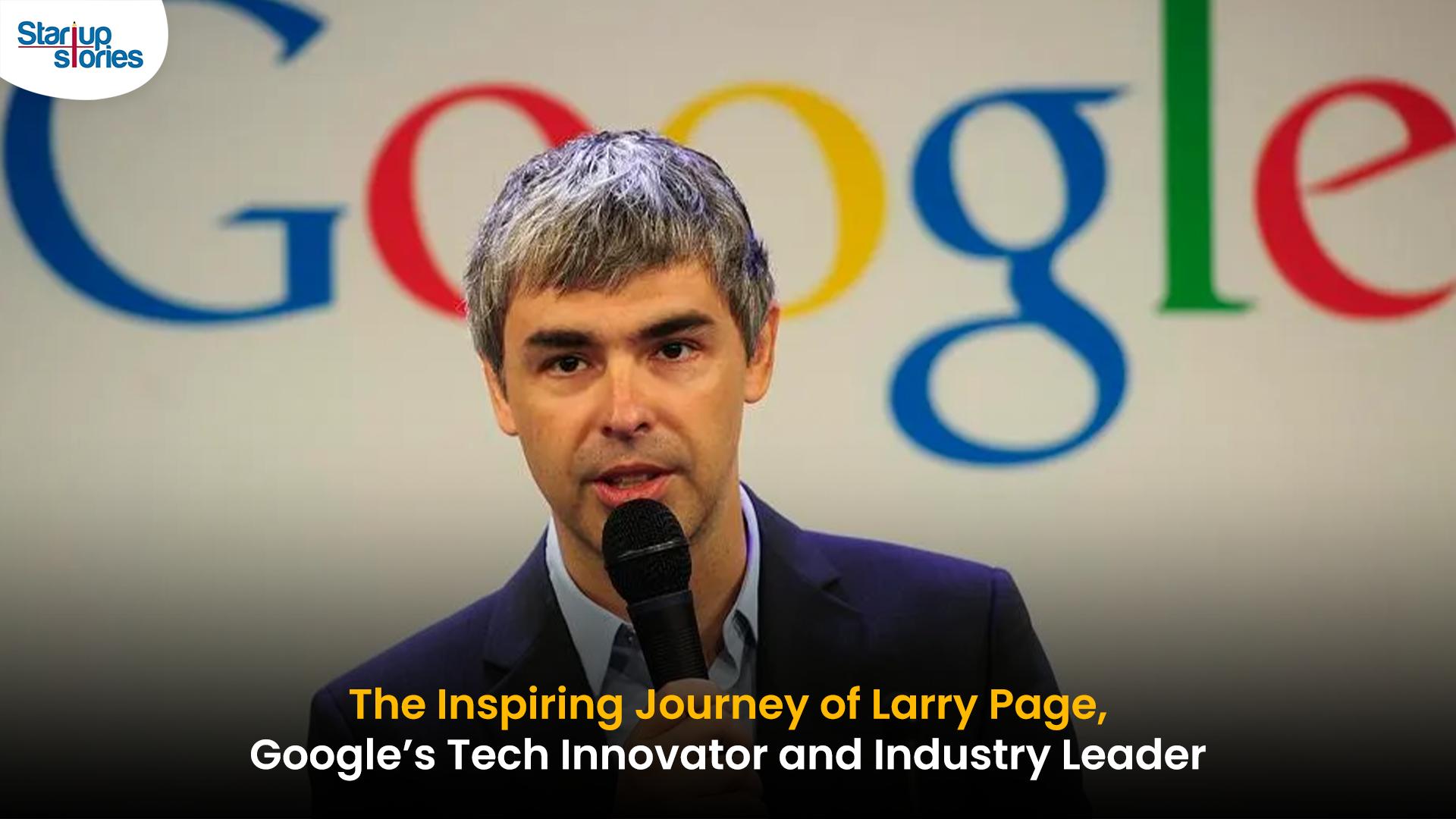Stories
Most Successful Shark Tank Products

Since its debut in 2009, the reality show Shark Tank has seen a lot of innovative startup ideas turn into successful businesses. The reality show is based on a concept where aspiring entrepreneurs present their business ideas to a panel of investors and convince them to invest in their startups. Of these numerous business ideas, there are certain products which became massively successful over time. Here are 6 such products which had their beginning from Shark Tank.
Most successful Shark Tank products
1) Scrub Daddy

Invented by Aaron Krause, Scrub Daddy is a cleaning tools company, best known for its sponge, also called Scrub Daddy. The sponge is made up of strong “hi-tech polymers” and changes its texture according to the water temperature. Founded in 2012, it is the most successful Shark Tank product yet. On Shark Tank, Krause made a deal with one of the panelists Lori Greiner for $ 200,000 in return for 20 % equity stake in Greiner’s name in the Company. The following day, they went on to sell almost 42,000 sponges in just under 7 minutes. The company Scrub Daddy has been growing ever since and is now valued at $ 170 million.
2) Simple Sugars

Simple Sugars is an all natural skincare brand, founded by Lani Lazzari when she was only 10 years old. Lazzari appeared on season 4 of Shark Tank in 2013 and successfully pitched her company to investor Mark Cuban, who made an offer of $ 100,000 for a 33 % stake in the Company. The Company’s sales went up to $ 220,000, just 24 hours after its launch and reached $ 1 million just after six weeks. Now, the Company has grown to become a $ 10 million business.
3) Tipsy Elves

Co founders Evan Mendelsohn and Nick Morton successfully pitched their company Tipsy Elves during a season 4 episode of Shark Tank to investor Robert Herjavec. Herjavec offered the duo $ 100,000 for a 10 % stake in the Company. The Company’s sales skyrocketed to $ 12 million in 2014. Since then, the Company sold over $ 70 million worth of its products. Herjavec once stated Tipsy Elves was the best performing investment out of all his Shark Tank investments.
4) Bombas

Bombas is a sock manufacturing company founded by Randy Goldberg and David Heath and follows a one for one business model, where the Company donates one pair of socks to homeless people for every pair sold. Goldberg and Heath appeared on Shark Tank in 2014 and received funding of $ 200,000 from investor Daymond John for a 17.5 % stake in the Company. Bombas made $ 50 million in sales in 2017 and donated almost 7 million socks to homeless people.
5) ReadeREST

Founded by Rick Hopper, ReadeREST sells magnetic eyeglass holders, patented by Hopper. Hopper appeared on season 3 of Shark Tank and pitched his company successfully to investor Lori Greiner for $ 150,000 for a 65 % equity in Greiner’s name. Made as a replacement for glass straps, ReadeREST has made over $ 27 million in sales and grabbed shelf spaces with retailers like Walmart.
The journey of these products and their founder to success is quite inspirational and interesting as they turned a small idea into a success story.
The success story of which of these products impressed you the most? Comment below and let us know.
Videos
T.N. Seshan: The Fearless Reformer Who Redefined Indian Democracy

T.N. Seshan’s name stands tall in India’s history as the man who transformed the nation’s electoral system with extraordinary courage and integrity. Born in 1932 in Kerala, Seshan grew up with values of discipline, education, and service to the nation — virtues that shaped his illustrious journey. From his early brilliance at Madras Christian College to his advanced studies in public administration at Harvard University, Seshan’s path reflected rare determination and intellect. Joining the Indian Administrative Service in 1955, he built a reputation as a no‑nonsense officer committed to efficiency and honesty, serving in key roles such as Secretary of Defense and overseeing vital national programs.
As the Chief Election Commissioner of India in 1990, T.N. Seshan sparked a new era of electoral integrity. In a system once marred by corruption, violence, and malpractice, Seshan brought order, fear, and respect through his groundbreaking reforms. He introduced voter ID cards, imposed strict spending limits on campaigns, and insisted on transparency at every level of the election process. Despite criticism from political circles that labeled him dictatorial, his relentless pursuit of fairness empowered every citizen to vote fearlessly. Under his leadership, the Election Commission became a symbol of strength and integrity in Indian democracy.
Seshan’s passing in November 2019 marked the end of an era, but his message continues to resonate across generations. Leaders from every corner of the country mourned the loss of the man who restored faith in free and fair elections. His enduring legacy reminds us that true leadership lies not in wielding power, but in serving people with honesty, courage, and conviction. T.N. Seshan’s life remains a timeless inspiration a reminder that democracy thrives only when its citizens are vigilant, responsible, and fearless.
Entrepreneur Stories
Indian Man Quits JPMorgan, Takes 70% Pay Cut to Launch $6 Million Startup

Leaving behind a high-paying job at JPMorgan, an Indian entrepreneur embraced a 70% salary cut to pursue true purpose and passion in the startup world. Disenchanted with what he described as a “robotic” corporate routine, he sought meaningful work that made a real impact. This pivotal decision marked the beginning of his new journey, one focused on value creation rather than titles and corporate perks.
Powered by resilience and fresh perspective, the entrepreneur launched his own startup, prioritizing innovation and hands-on solutions. The road was challenging, but his vision resonated with the market: the startup quickly gained traction and raised $6 million—an impressive acknowledgement of its potential in a competitive landscape. Every hard lesson from early setbacks and bootstrapping paid off in real customer growth and investor confidence.
Today, his journey stands as an inspiring example for professionals seeking authentic success outside the corporate grind. By trading comfort for creative freedom, he grew a venture that solves important problems, generates jobs, and builds wealth beyond just salary. For ambitious founders, his story highlights the power of risk-taking, adaptability, and relentless focus on impact in India’s thriving startup ecosystem.
Videos
Larry Page: The Visionary Co-Founder Behind Google’s Global Success

Larry Page is a visionary technology entrepreneur and co-founder of Google, one of the world’s most influential companies. Born in 1973 in Michigan, Page grew up surrounded by computer technology, which inspired his passion for innovation from an early age. He studied computer engineering at the University of Michigan and later pursued his PhD at Stanford University, where he developed the revolutionary PageRank algorithm with Sergey Brin. This technology fundamentally changed the way search engines rank websites, making Google the most accurate and popular search engine globally.
The journey of Larry Page and Google began in 1998 when they officially launched the search engine from a small garage. Leveraging their unique algorithm, Google quickly surpassed competitors due to its ability to deliver highly relevant search results, transforming internet search forever. Under Larry Page’s leadership as CEO, Google expanded beyond search to launch groundbreaking products including YouTube, Gmail, and Google Maps, turning it into a global tech powerhouse that shapes how we access and interact with information online.
Larry Page later became the CEO of Google’s parent company, Alphabet Inc., driving innovation and investment in next-generation technologies such as artificial intelligence, autonomous vehicles, and healthcare solutions. His visionary leadership and commitment to technological advancement have cemented his legacy as one of the most influential figures in the tech industry. Today, Larry Page remains a key influencer in shaping the future of technology and digital innovation worldwide.














iwin
November 6, 2025 at 4:01 am
iwin – nền tảng game bài đổi thưởng uy tín, nơi bạn có thể thử vận may và tận hưởng nhiều tựa game hấp
J88
November 7, 2025 at 12:35 am
Đến với J88, bạn sẽ được trải nghiệm dịch vụ cá cược chuyên nghiệp cùng hàng ngàn sự kiện khuyến mãi độc quyền.
谷歌站群
November 7, 2025 at 4:43 pm
专业构建与管理谷歌站群网络,助力品牌实现全域流量的强势增长。谷歌站群
MM88
November 7, 2025 at 5:09 pm
Khám phá thế giới giải trí trực tuyến đỉnh cao tại MM88, nơi mang đến những trải nghiệm cá cược thể thao và casino sống động.
站群程序
November 9, 2025 at 3:51 am
搭载智能站群程序,自动化搭建与管理,为SEO项目提供核心驱动力。站群程序
MM88
November 10, 2025 at 7:04 am
Với giao diện mượt mà và ưu đãi hấp dẫn, MM88 là lựa chọn lý tưởng cho các tín đồ giải trí trực tuyến.
Kuwin
November 19, 2025 at 12:37 am
kuwin sở hữu kho game đa dạng từ slot đến trò chơi bài đổi thưởng, mang đến cho bạn những giây phút giải trí tuyệt vời.